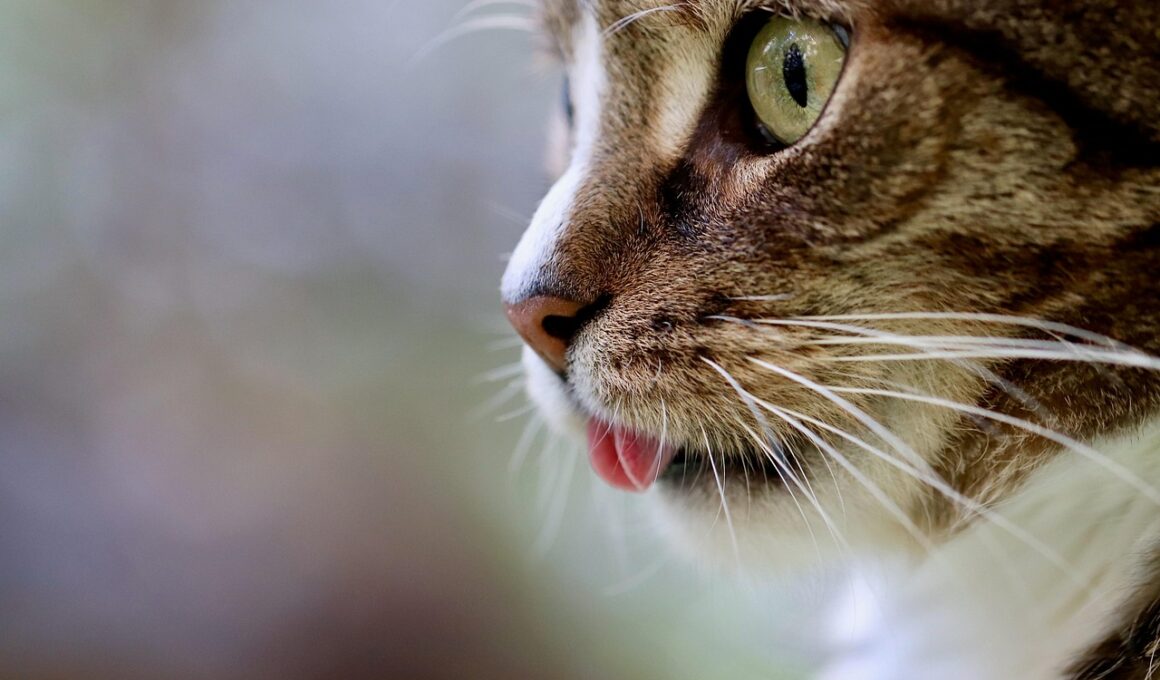Navigating Cat Ownership Laws: A Guide for Pet Owners
Becoming a cat owner involves understanding several legal obligations that may not be immediately apparent. Ownership laws vary significantly by location, but most jurisdictions outline basic responsibilities that every owner must abide by. It is crucial for cat owners to educate themselves on these laws to avoid potential conflicts with neighbors and legal issues. First and foremost, pet owners should ensure that their cats receive proper vaccinations. Many municipalities require specific vaccinations, such as rabies, for cats, and failure to comply can result in fines. In addition to vaccinations, license laws may exist, requiring cat owners to register their pets. This registration helps local authorities keep track of pet populations. Furthermore, it is essential to spay or neuter cats to prevent overpopulation, which may be mandated by local ordinances. More than just legal obligations, these responsibilities contribute to a healthier community. By following local laws, cat owners can foster positive relationships with neighbors and contribute to the overall well-being of their cats. Returning lost cats to their rightful owners is essential, and maintaining updated information is crucial. This is just the beginning of understanding pet ownership rights.
Understanding Local Legislation
Each city or county has its own set of laws regarding pet ownership, including specific rules about cats. Owners should consult their local ordinances to learn about regulations unique to their area. For instance, some cities have leash laws that apply to cats, requiring owners to keep their cats indoors or restrained when outside. Other municipalities may have different guidelines about how outdoor cats should be managed. Understanding these rules is crucial in preventing conflict with animal control and neighbors. Also, certain breed restrictions may apply, especially for hybrid cats that share traits with larger feline species. Owners should also be aware that some areas have mandatory cat curfews or specific guidelines about maintaining a safe and clean environment, which can impact outdoor access. Ignoring such guidelines can lead to citations or complaints. Keeping cats from wandering onto adjacent properties is not only considerate but also supports compliance with local laws. A responsible cat owner will seek to maintain a tranquil living environment through adherence to local legislation. Education continues to be a powerful tool in ensuring both legal compliance and pet safety.
In addition to local laws, pet owners must be mindful of their responsibilities concerning the maintenance of their feline friends. Proper care includes providing necessary sustenance, regular veterinary check-ups, and addressing any behavioral issues. A well-cared-for cat is less likely to become a nuisance to neighbors. If issues arise, such as excessive noise or littering, it can affect community relations. Many communities encourage owners to resolve these issues amicably. Cat owners might consider attending local workshops to better understand and fulfill their obligations. Resources may also be available through local shelters or pet organizations that provide education on responsible cat ownership. Additionally, countless online forums and websites are dedicated to disseminating helpful information on these topics. Engaging in these educational opportunities can foster a positive environment for both pet owners and their neighbors. In many cases, conflict arises from misunderstandings about what it means to own a cat responsibly. By staying informed, cat owners can actively contribute to community harmony while preventing legal complications. Moreover, a well-informed owner improves their cat’s quality of life. Conscientious pet care should be a community-wide effort to promote responsible cat ownership.
Insurance for Cat Owners
Another key component of cat ownership legality is understanding insurance obligations. Many pet owners are unaware that their homeowner’s insurance policies may include limitations or exclusions for pet-related incidents. It’s important to check whether your insurance covers pet-related damages or any liabilities stemming from pet behavior, including bites or property damage. If your policy lacks such coverage, employees or guests injured by your cat could potentially bring a claim against you. Therefore, keeping adequate insurance is crucial for protecting yourself should an incident arise. Some pet owners choose to purchase separate liability insurance for their pets for additional peace of mind. Cat owners should evaluate their specific needs and make adjustments as necessary. Understanding your homeowner’s policy and any additional insurance requirements can save substantial financial strain. It’s best to communicate with your insurance provider to better understand what specific scenarios are covered. Additionally, having comprehensive insurance allows for a proactive approach to pet liability, ensuring you remain within legal guidelines. Paying careful attention to these details not only satisfies legal responsibilities but also encourages responsible pet ownership.
Cats may also face legal issues surrounding their welfare. Various animal welfare laws protect pets from neglect and abuse, which directly impacts owners’ responsibilities. This legislation aims primarily to ensure that cats are provided with food, water, shelter, and veterinary care. Violations can lead to serious consequences, including fines and the potential removal of the animal from the owner’s care. Therefore, cat owners must strive to meet their cats’ basic needs to avoid legal implications. Community resources like humane societies and animal control can offer guidance on optimal care practices. Staying connected to local animal welfare organizations can also keep owners informed about regulations regarding the treatment of pets. Many organizations provide educational programs designed to aid owners in understanding and complying with welfare laws. Empowering oneself with knowledge regarding animal care and well-being creates a healthier environment for pets. Providing a loving and supportive home not only enhances the life of a cat but also fulfills legal obligations. Owners must prioritize the welfare of their pets to align with both the spirit and letter of the law. Recognizing these judicial aspects is paramount for any responsible cat owner.
Community Relations and Responsibilities
Being a responsible cat owner extends beyond personal obligations and touches upon community relations. Pets, especially cats, may sometimes cause disturbances that affect neighbors, such as excessive noise or property damage. Therefore, it is vital for pet owners to be active participants in their communities. This means respecting neighbors by ensuring your cat does not overstay its welcome on other properties. Ideally, various strategies can create positive interactions with neighbors while minimizing potential tensions. For instance, cat owners can create enclosed outdoor spaces tailored specifically for their pets, allowing them outdoor exposure without the risks associated with roaming freely. By doing so, cats can enjoy fresh air while staying within safe confines. Regularly maintaining a clean environment helps establish goodwill, as mess and litter can lead to disputes. Taking the time to foster good relationships with neighbors contributes significantly to a harmonious atmosphere in community living. Open communication about cats and pet-related topics can be invaluable in addressing concerns. Potential conflicts are easier to navigate with a foundation of understanding. Outreach and cooperation within neighborhoods bolster community spirit and lead to thriving pet-friendly environments.
Lastly, it is key for cat owners to stay informed and connected with relevant community resources. Keeping an eye on local initiatives can help owners become aware of changes in laws or resources available to them. Many communities offer workshops or seminars on responsible pet ownership, providing valuable insights into all aspects of cat care and ownership obligations. Becoming involved in local pet-related activities helps empower owners to take charge of their responsibilities. Online platforms dedicated to pet ownership discussions and support groups can also provide enrichment and advice. Engaging with fellow cat owners allows for the exchange of experiences and knowledge, promoting a vibrant community. Additionally, creating awareness about local animal laws through community efforts can aid in reducing misunderstandings about pet-related issues. Fostering a culture of shared learning about cat ownership responsibilities promotes a stronger community overall. Moreover, participating in these conversations brings awareness to newcomers or uninformed community members, benefiting all feline companions. Ultimately, by empowering one another and staying informed, cat owners can not only adhere to laws but also foster supportive communities for their beloved pets.


